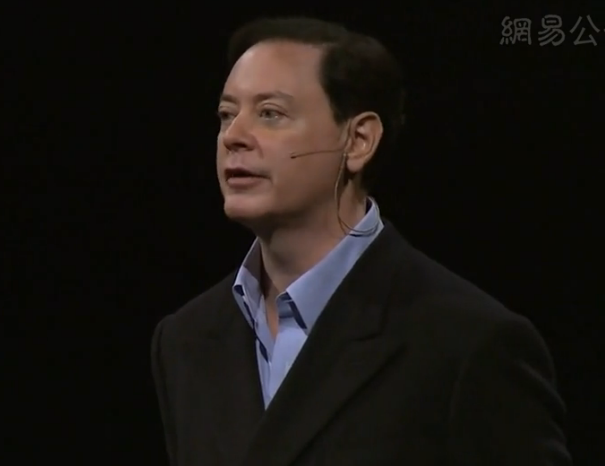If you told me that I'd have to be depressed for the next month,
如果你告訴我,我會(huì)在接下來(lái)的一個(gè)月里一直抑郁
I would say, "As long I know it'll be over in November, I can do it."
我會(huì)說(shuō),“只要一個(gè)月之后不抑郁了我就可以接受。”
But if you said to me, "You have to have acute anxiety for the next month,"
但如果你告訴我,“你會(huì)在接下來(lái)的一個(gè)月里嚴(yán)重焦慮。”
I would rather slit my wrist than go through it.
那么我寧可割腕也不愿意忍受
It was the feeling all the time
這是一種持續(xù)的感覺
like that feeling you have if you're walking and you slip or trip
就好像你走在路上滑倒了或者絆倒了
and the ground is rushing up at you,
地面猛沖向你的感覺
but instead of lasting half a second, the way that does, it lasted for six months.
但這種感覺不是半秒鐘,而是持續(xù)6個(gè)月
It's a sensation of being afraid all the time but not even knowing what it is that you're afraid of.
這是一種時(shí)時(shí)刻刻感到懼怕,卻不知道自己在懼怕什么的感覺
And it was at that point that I began to think that it was just too painful to be alive,
就在那時(shí)我開始想活著太痛苦了
and that the only reason not to kill oneself was so as not to hurt other people.
人不自殺的唯一原因是因?yàn)椴幌雮ι磉叺娜?/p>

And finally one day, I woke up and I thought perhaps I'd had a stroke,
終于有一天,我醒來(lái)的時(shí)候,我覺得我可能中風(fēng)了
because I lay in bed completely frozen, looking at the telephone, thinking,
因?yàn)槲姨稍诖采险麄€(gè)人是完全僵硬的,我看著電話,心想
"Something is wrong and I should call for help,"
“不好了,我該打電話求助。”
and I couldn't reach out my arm and pick up the phone and dial.
但我沒辦法伸出手去,沒有辦法拿到電話來(lái)?yè)芴?hào)
And finally, after four full hours of my lying and staring at it, the phone rang,
終于,在我躺在那盯著電話整整四小時(shí)之后,電話鈴響了
and somehow I managed to pick it up, and it was my father,
我不記得自己怎么拿到的電話,是我父親打來(lái)的
and I said, "I'm in serious trouble. We need to do something."
我說(shuō),“我現(xiàn)在遇到大麻煩了,我們必須做點(diǎn)什么。”
The next day I started with the medications and the therapy.
第二天我開始吃藥,開始接受治療
And I also started reckoning with this terrible question:
與此同時(shí)我開始思考一個(gè)可怕的問題
If I'm not the tough person
如果我不是那種堅(jiān)強(qiáng)到
who could have made it through a concentration camp, then who am I?
即使被送去集中營(yíng)也可以存活下來(lái)的人,那么我是誰(shuí)呢?
And if I have to take medication,
如果我需要吃藥的話
is that medication making me more fully myself, or is it making me someone else?
那么藥物是讓我變得更像自己,還是讓我更不像自己?
And how do I feel about it if it's making me someone else?
如果會(huì)讓我變得像別人,那么我又如何感覺到這點(diǎn)呢?
I had two advantages as I went in to the fight.
在這個(gè)抗?fàn)幍倪^程中我有兩個(gè)優(yōu)勢(shì)
The first is that I knew that, objectively speaking,
首先是我很清楚,客觀地說(shuō)
I had a nice life, and that if I could only get well,
我有一個(gè)不錯(cuò)的生活條件,如果我能好起來(lái)
there was something at the other end that was worth living for.
那么最終是會(huì)有一些東西值得我去為之而活的
And the other was that I had access to good treatment.
另外一點(diǎn)就是我能接受好的治療
But I nonetheless emerged and relapsed,
但我卻不知為何,好轉(zhuǎn)了又復(fù)發(fā)
and emerged and relapsed, and emerged and relapsed,
又好轉(zhuǎn),又復(fù)發(fā),再好轉(zhuǎn),再?gòu)?fù)發(fā)
and finally understood I would have to be on medication and in therapy forever.
最后我才意識(shí)到,我必須一輩子依賴藥物以及治療
And I thought, "But is it a chemical problem or a psychological problem?
于是我想,“但這到底是一個(gè)化學(xué)問題還是一個(gè)心理問題?
And does it need a chemical cure or a philosophical cure?"
這到底需要化學(xué)療法還是心理療法呢?”
And I couldn't figure out which it was.
我無(wú)法找到問題的答案
And then I understood that actually,
然后我明白了
we aren't advanced enough in either area for it to explain things fully.
事實(shí)上我們對(duì)這兩個(gè)領(lǐng)域的了解都還不夠,都還不足以完全弄清真相



